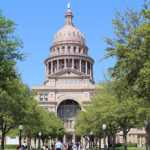Posted: 9/03/04
Florida vouchers ruled unconstitutional
By Robert Marus
ABP Washington Bureau
TALLAHASSEE, Fla. (ABP)– A divided state appeals court has upheld a lower court's ruling that the state's school-voucher program violates the Florida Constitution.
In a 2-1 decision, a panel of the state's First District Court of Appeals ruled the voucher program is unconstitutional because it allows government-funded scholarships to be spent at religious schools.
The relevant section of the Florida Constitution states no state money “shall ever be taken from the public treasury directly or indirectly in aid … of any sectarian institution.”
Attorneys for Gov. Jeb Bush and other Florida officials had argued the program was constitutional because the provision in question did not impose any greater restriction on funding of religious schools than does the First Amendment of the United States Constitution.
In 2002, the U.S. Supreme Court said a similar Ohio voucher program did not violate the clause of the First Amendment that forbids government from making a law “respecting the establishment of religion.”
Authoring the majority opinion, Judge William Van Nortwick said that argument was spurious.
“For a court to interpret the no-aid provision … as imposing no further restrictions on the state's involvement with religious institutions than the (federal Constitution's) Establishment Clause, it would have to ignore both the clear meaning and intent of the text and the unambiguous history of the no-aid provision,” he wrote.
Van Nortwick also said a more recent Supreme Court ruling–the Locke vs. Davey decision, handed down earlier this year–meant provisions such as those in Florida's constitution did not violate the other half of the First Amendment's religion clauses–that government could not limit religious expression.
But Judge Ricky Polston dissented, saying the Florida provision shouldn't be interpreted as being any more restrictive than the First Amendment.
He also said the state government already provides indirect funding to religiously affiliated groups and shouldn't treat schools any differently.
“There is no distinction between this Opportunity Scholarship Program and the state Medicaid program that funds religiously affiliated or operated health care institutions providing free or subsidized medical care,” Polston noted.
“Other examples are legislative programs providing public funds to any public or private person or organization for preservation of historic structures, rent paid to churches for use of their facilities as polling places, and government subsidized pre-K or childcare programs operated by churches or faith-based organizations.”
The case, Bush v. Holmes, began when a collection of civil-rights and educational organizations sued the state on behalf of a group of Florida parents who believed it was unconstitutional. In 2002, a trial judge agreed with them, and ordered the program halted.
Bush and other state officials appealed the ruling.
In the current ruling, the appeals court asked the state Supreme Court to review the case.














We seek to connect God’s story and God’s people around the world. To learn more about God’s story, click here.
Send comments and feedback to Eric Black, our editor. For comments to be published, please specify “letter to the editor.” Maximum length for publication is 300 words.